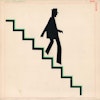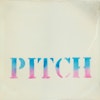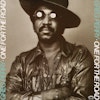At a time when rap’s social conscience is currently tied, directly, to the aftereffects of #BLM and the 2017 Summer of Hate, it is quaint looking backwards to a moment when rhythm writing (or riddim) and “the spoken word” consciously meant something as ripely poetic as it was righteously political.
Now nearly seventy, Jamaican-born, British-based spoken-word artist, activist, author, and dub poet Linton Kwesi Johnson was all that at the height of his wordy rapping-hood fame (to quote the Tom Tom Club).
In 2002, LKJ became the second living poet to be published in the Penguin Modern Classics series. Twenty-five years prior to that, his world was that of the politicized performance poet, an action-ist (as well as an activist) whose live and recorded collaboration with genius reggae producer/artist Dennis Bovell made for a shift in the British/Jamaican musical paradigm that hadn’t occurred since Marley wailed.
Johnson and Bovell fashioned three boldly toned albums—a trifecta of classics—in 1978’s Dread Beat an’ Blood, 1979’s Forces of Victory, and 1980’s Bass Culture, all bathed in dub’s languor, thick with the lanky poet’s Jamaican patois, a slow, steady recitation of his verse, and made whole by punk’s sketchy aggression and DIY attitude.
And while most view Forces of Victory as the pair’s breakthrough—from LKJ’s in-your-face “Fite Dem Back” to his poignant prison saga, “Sonny’s Lettah”—Bass Culture is, for this writer, the stronger annunciation of the duo’s intent and the daringness of dub. For Bass Culture is open, clear, and all the more cutting in its sheer, spacious dub glory when played live (thank you Bovell and the Dub Band who roll softly and swing hard) and given a spoken-word bedrock as bin-rattling as the “bass” of its title.
First, there are Bovell’s all-stars, longtime Kingston- and London-based session artists such as tenor saxophonist (and brass player) Henry “Buttons” Tenyue, bassist Vivian Weathers, drummer “Jah Bunny” Donaldson, and brass men such as trumpeter Dick Cuthell and the legendary Rico Rodriguez on trombone. What Lee Perry meant to the knob-twiddling, coke-snorting studio concoction of dub’s lush, dark, overbearing skies, these players were to its cloud accumulation—that which made the heavens cry, the thunder clap, and the rains fall. Dennis “Blackbeard” Bovell, its captain, keyboardist, and producer, rights a heavy-rocking ship, and creates a heaving breeze in tune with the poet’s lamentations. Pit the slithering reggae horrorcore of “Reggae fi Peach” against its real-life tale of a New Zealand–based activist named Blair Peach who was killed by London police in 1979 while protesting the Anti-Nazi League against a British National Front meeting, and its effects are numbing and stunning. Forces of Victory may have more radical poetics about the currency of workers, police, and thieves in the soup, but Bass Culture makes it sing.
That’s how Linton Kwesi Johnson gets you. Though his voice is stony and deep, it is agile enough to click with the percussion and throb with its bass lines. Anyone who recalls the singsong quality of Dillinger (“a knife, a fork, a bottle, and a cork, that’s the way you spell New York”) might come prepared for LKJ’s nimble locution. Yet, Johnson’s baritone throttle, say, when portraying the battles of his adopted home and its confrontational politics (as on the West Indian communal gripe “Inglan Is a Bitch”) has the sort of authoritarian weight of an Orson Welles or a James Earl Jones rapping Baldwin. And that sort of king-seat recitation—as prickly and poignant as it is on the socially astute moments of Bass Culture—holds sway, even more sweetly, on the soul-stirringly romantic “Two Sides of Silence.”
That’s another thing that Bass Culture has over Forces of Victory: love and sensuality examined through LKJ’s serene spoken word.


